- Home
- Barry Lyga
MARVEL's Avengers: Infinity War: Thanos Page 2
MARVEL's Avengers: Infinity War: Thanos Read online
Page 2
The previous night, he’d memorized the layout of the school so that he would not get lost. Now he led the group—about ten of them—back down the hallways, to a bio lab for the older students. It was unused at the moment and it had everything Thanos needed.
He arranged his retinue around a workbench with a microscope filter, then rummaged around until he found a needle, typically used for pinning down samples. He had a different use for it.
As the clutch of children watched, their breaths held in unison, Thanos pricked the tip of his thumb with the needle. A gasp went up as the red bubble formed.
He squeezed a drop of blood onto the microscope filter and a light filled the room. A holographic image of his own blood, now projected into the air. A chorus of oohs and aahs rose up from the other children.
Pleased, Thanos fiddled with the controls to sharpen and clarify the image. Globules pulsed and danced across the room. The other children pointed and laughed with delight at the show.
“This is my blood,” Thanos explained. “And for comparison…”
He took the hand of a boy near him and poked at his thumb with the needle. A spot of blood welled up there and the boy shrieked as though gutted.
No one was pointing and laughing now. There was a moment of group silence, counterbalanced by the boy’s ongoing cry of pain and shock, and then the rest of the children howled as though they, too, had been jabbed.
And there, now, was the fear his father had promised. It washed around Thanos. It enveloped him.
Thanos dropped the boy’s hand and stood in stunned silence as the screams grew higher and higher around him.
Later, he waited in the office of the school’s proctor, alone. A sound caught his attention and he looked up.
A’Lars stood in the doorway.
“This experiment is a failure,” his father announced. “Come home.”
That night, Thanos stole out of bed and listened at the door to his father’s cogitarium, the study where A’Lars spent most of his hours in deep thought. A voice not his father’s came to him through the door.
“You know I revere you, A’Lars. We all do—”
“Then speak plainly,” A’Lars demanded.
“Your child. He is… different.”
“Indeed. You’ve noticed. I salute your perceptions.”
A’Lars’s sarcasm silenced the other for a moment. Then: “Perhaps there is something more suitable for the child of the esteemed A’Lars than a pedestrian school.”
“Without doubt,” A’Lars said smoothly. “Thank you for your time, your consideration, and your counsel.”
A’Lars switched off the comms, and Thanos, straining, heard his father mutter, “Dolts.”
It was irregular, to say the least, for a child to be withdrawn from school and taught by a parent. But A’Lars’s shadow was long, his fame all-encompassing.
And besides… everyone knew it was for the best.
While his father’s specialty was synthetic intelligence, he was something of a polymath and also dabbled in materials science and architecture, which had led to his prominence on Titan. There was only so much livable terrain on the planet, and A’Lars had figured out how best to use that space and, furthermore, how to protect it from the vicissitudes of nature. His skills translated into considerable fame and political power, making the absence of his wife and the grotesqueness of his son all the more shameful.
He was an indifferent father, but a challenging and unfathomably brilliant teacher. While Thanos resented the loss of the opportunity for companionship and friends, he had to admit—begrudgingly—that A’Lars was a more fitting teacher for him.
Praise was rare. His father would sometimes comment on Thanos’s intelligence as though it were a fait accompli, as though its very existence made Thanos’s enormous mental capacity exceptional and unexceptional at the same time. Lessons were quick and expected to be passed with one hundred percent understanding.
“Your intellect is your primary and best tool,” his father said once in a scarce shared moment. “Someday, if your achievements merit, you may have the honor of being called Tha-nos. Or perhaps even T’Hanos, though I’d advise you not to set your sights so high,” A’Lars cautioned.
“I am still lonely,” Thanos said, struggling to keep a note of whining out of his voice. He knew his father loathed such childish things.
A’Lars sighed in defeat. “I will arrange…” he began.
A’Lars was as good as his word and did indeed arrange something. He brought Thanos an actual, living boy. Several of them, actually. To vie for the role of friend. Only one passed muster.
Sintaa was, by definition, Thanos’s best friend, since he was Thanos’s only friend. Lean where Thanos was broad, Sintaa had an enviably smooth, normal-size chin and skin the acceptable color of raw peaches. He was possessed of a sunny disposition, in contrast to Thanos’s taciturn, withdrawn nature.
As the years passed, Thanos suspected that A’Lars had paid, blackmailed, or threatened Sintaa’s parents into having their child become his son’s friend. His father would never admit to such a quotidian and desperate tactic, but by the age of ten, Thanos could prize out certain words and phrases that led him confidently to this conclusion. Cruelly, fate and genetics had cursed him with a phenomenal mind, one that made him all the more keenly aware of his deformation and of the singular nature of his ostracism. From what he gleaned by watching news and entertainment holos, he realized the depth of his isolation, but was powerless to rectify it.
And yet Sintaa himself—regardless of what pressures had been brought to bear on his parents—seemed genuinely to enjoy Thanos’s company. Of all the children who had been paraded before him to audition for the role of “friend,” only Sintaa possessed an easy smile, a laconic and relaxed mien, and the glint of trouble in his eyes. Thanos attempted to resist liking him, and failed.
“You are the first thing my father has brought to me that I actually enjoy,” Thanos said at one point early in their friendship.
Sintaa grinned. He was too intelligent for his age, too, though not nearly as brilliant as Thanos. “I’m not a thing,” he reminded Thanos. “I’m a person.”
Thanos grunted in assent. “Of course.”
They played together in the chambers Thanos shared with his father, never in public, never at Sintaa’s house. Thanos had figured out a way to paint with light, devising a series of databrushes that collected photons and froze them temporarily in place, and they spent hours painting the air, watching the holograms glimmer and shine before they eventually corroded and bled off like slow fireworks.
“Can I ask you a question?” Thanos said.
Sintaa seemed surprised. He paused in mid-brushstroke. “You never ask questions. You know everything already.”
“I wish that were true,” Thanos admitted. “There’s much I do not know. Especially with regard to one thing.”
Sintaa sat back. The holograms danced and sparkled around him, flickering dreams caught and dragged into the waking world. “Ask.”
Thanos hesitated. For the first time in his life, he understood the idea of being nervous.
“What is it like,” he managed eventually, “to have a mother?”
Sintaa laughed. “Everyone has a mother, Thanos.”
Had Thanos been capable of blushing, he would have done so at that moment. “Biologically speaking, yes. But what is it like to have one, not merely to come from one?”
Sintaa’s eyes softened. He opened his mouth to speak, then closed it. Opened it again. Closed it. It took many such cycles before he found his voice.
“I don’t know how to describe it to you,” he confessed. “It’s all I’ve ever known.”
It’s all I’ve ever known. Those words struck Thanos with a sharp pain he’d never experienced. More than the words, though, was the tone of Sintaa’s voice as he said them. There was a warmth and comfort there, and Thanos knew that this was what he was missing—the succor of his mother. As far as he coul
d tell, every living thing on Titan had the love of its mother except for him.
“I don’t even know where she is,” Thanos said. “One of the few secrets A’Lars has succeeded in keeping from me.”
After a moment’s hesitation, Sintaa said, “I know where she is.”
By this point in his life, Thanos had the shape and height of an older child. His growth spurts were frequent and painful. At almost one and two-thirds meters tall, he had the appearance of an early adolescent, masking the mind of a genius. His skin had lightened somewhat since birth, but was still the hated and feared purple. He seldom ventured forth from his father’s house—A’Lars had told him many times that it was best not to upset people.
So today Thanos wore a cloak with a hood that covered his head and hid his face in shadow. Dragging the tail of the cloak along the ground, he approached a specific building not with fear, but rather trepidation.
Behind him, Sintaa nodded, encouraging him forward.
The building was nondescript and squat, a rare low structure in a city dominated by towering skyscrapers and floating edifices buoyed aloft by antigravity technology.
Sintaa had heard of it from his parents. They referred to it as a kind of hospital. Thanos knew what a hospital was, of course—a place where ailments were cured, injuries given balm.
Was his mother ill? Is that why no one would let him see her? But in that case, why not just tell him? Why the secrecy and the shame?
It didn’t matter: His mother was in there. That was all he cared about.
He hesitated just a moment at the door. He was a boy of ten, a child, and despite his intellect—or maybe because of it—he knew that the combination of his age and his appearance would not stand him in good stead here. He knew rejection lurked in his immediate future.
He opened the door anyway. He went inside.
Within, the air smelled of ozone and antiseptic. The walls and floors were dim and soft, the ceiling a series of lighted panels. He walked down the entry hall until he found another door. Opened it. Went inside.
A man stood there, his furrowed brow the color of faded grass on an autumn day. He wore the black tunic and red epaulets of a doctor, but his expression was anything but comforting.
“Thanos,” he said in a disapproving tone. “I was told you were coming.”
Thanos and Sintaa had told no one of their decision to come here. For the first time in his life, Thanos realized that he was being watched. All the time.
“I would like to see Sui-San,” Thanos said with as much dignity and intensity as he could muster. “My mother,” he added.
The doctor’s eyes narrowed, and something like pity flickered there. Thanos suppressed the rage that rippled through him. He had no use for pity.
“I’m truly sorry,” the doctor said. “I can’t allow that.”
“I didn’t ask if you could allow it,” Thanos said, marshaling all his outrage. “Let me see my mother.”
“You’ll need to speak to your father about that,” the doctor said, gesturing mysteriously. “If you don’t leave, I’ll have to have you removed, and I don’t want to do that to you.”
Speak to your father…. He had. Since his very first words—Will Mother attend?—he had asked after his mother, had all but begged A’Lars to let him see her, but he had been stonewalled at every opportunity, denied, told by word and deed and inaction that he would never see Sui-San.
“Do not deny me,” Thanos said, and balled his hands into fists.
The doctor did not laugh at this sight. He cleared his throat and said, “I will summon a security—”
And Thanos felt more than saw a red scrim of rage unfurl between him and the rest of the world. Without conscious thought, he flung himself at the doctor.
He was ten years old and he was angry and he was strong and he had the advantage of youth, which does not know how to conserve its energies. The doctor howled and dropped back as Thanos attacked, leaping up to collide with the man’s chest, knocking him to the ground, where Thanos’s smaller stature was no disadvantage.
In the instant it took for them to crash to the floor together, a light burst in Thanos’s chest, and something heavy and sodden in him vanished. He felt lighter and happier than he’d ever felt. As though the world suddenly made absolute sense.
That was only an instant, a click of a dial between ticks. His mind went blank with the impact on the floor and he lashed out with both fists, pummeling the man’s face, and soon Thanos’s purple fists were smeared red with blood, and then strong hands grappled him from behind and dragged him away, screaming nonsense syllables, all his intelligence reduced to the raw meat of need and denial, the veneer of culture ripped away, leaving behind only an animal, an animal hauled away as its screams and bellows were swallowed by the soft, sound-dampening walls.
Later, A’Lars came to him in his room. Thanos sat on the floor in a corner, swaddled in darkness, staring at his hands, which he held interlinked in his lap.
“Will the doctor recover?” Thanos asked, a note of urgency in his voice. “The one I hurt?”
A’Lars clucked his tongue. “The ‘doctor’ is a new synthetic life-form I bred specifically to care for your mother. Designed with enhanced empathy and compassion. Congratulations, Thanos—you bludgeoned to death something that was not truly alive… and something that was designed from the start not to know how to fight back.”
Thanos twisted his hands together. They blurred as his eyes lost focus.
“That facility,” A’Lars went on, “is off-limits to you, Thanos. You were never told that, so I will not punish you for going there, or for the damage you caused to my creation.” His father glared sternly. “Go again and the punishment will be severe.”
Punishment… Thanos knew what that meant. The Isolation Room. A tiny chamber just off A’Lars’s cogitarium. Thanos would be placed within. Lights and noise bombarded him constantly so he could not think. It was the worst thing he could imagine, the worst thing he’d ever suffered.
But…
“Mother is there,” Thanos said without looking up. “How can you hide her from me?”
“You are a bright boy. You can find other things to occupy your mind than searching for your mother. She is irrelevant to you.”
“Irrelevant?” Thanos shouted, rising. “She is my mother!”
A’Lars did not so much as flinch. “She bore you. Nothing more. She has not seen you since the moment of your birth. She means nothing to you, and you mean nothing to her. Forget her, Thanos.” He gestured to Thanos’s desk and the holographic interface floating above and around it. “Return to your studies. You have a prodigious intellect, one that should not be distracted by such emotional concerns.”
Yes, he had a prodigious intellect. He had words that could counter his father’s argument, but in that moment, he was still just a boy. A boy who had come close to his mother, but not close enough. And in that moment, he could not combine those words into anything suitable or sensible. So he simply returned his gaze to his hands, staring at them until A’Lars gave up and left.
It didn’t take long. A’Lars always had something more important to do.
CHAPTER III
AS TIME PASSED, THANOS AND SINTAA GREW INSEPARABLE. One day they ventured out beyond the boundaries of the Eternal City and climbed into the foothills surrounding the range of cryovolcanoes that studded the land around the City. From this vantage point, they could see the entirety of the Eternal City beneath them—the drifting antigrav buildings, the towering edifice needles that blossomed into metal-and-glass flowers at their apexes, the slick black of the streets, so congested with solar traffic, and in the center of it all…
The MentorPlex! Rising over five hundred stories above the ground, it began as a slender pin, its shape warping like a sine wave turned on its side as it rose higher and higher, eventually unfolding into a perfect disk at its zenith. It would provide housing for tens of thousands of Titans. It had been designed by A’Lars as the paradig
m for all new construction in the Eternal City, growing up, up, ever up, as more and more people required homes. A’Lars was personally overseeing its construction, and he was obsessed with making it absolutely perfect.
“The MentorPlex is the future of Titan,” he told Thanos in a rare moment of sharing and excitement. He stroked the air, rotating a hologram of the building. “With many such buildings, we will change the landscape and the future of Titan even as we change the skyline of the Eternal City.”
The building generated vast heat as a result of its energy requirements, but A’Lars had—brilliantly, Thanos admitted—mitigated this problem by redirecting the native, subterranean nearly frozen ammonia from beneath the nearby cryovolcanoes to act as a natural coolant.
Now, gazing into the valley, at the city that was the only home he knew, Thanos felt a disturbance at his core. He couldn’t identify it. He only knew that something was off. Something was askew in some way that he did not yet understand.
There is something wrong with Titan, he thought.
“What did you say?” Sintaa asked, and Thanos realized that he’d spoken aloud, much to his surprise.
Lying never even occurred to him. Sintaa was his friend, and friends spoke truth. “There is something wrong with Titan,” Thanos told him. “Can’t you feel it?”
Sintaa shrugged. “All I feel is a breeze coming off the cryovolcanoes. Are you sure they’re dormant?”
“Most are,” Thanos said airily. “But truly, Sintaa—there is a rot in Titan. I’ve often thought it was me.”
“Thanos…”
He waved off his friend’s concern. “I see now that it’s something else.” He stood and gazed down on the Eternal City. Lit by millions of quantum-powered diodes, the City was a sketch made of light, a pulsating circuit board laid out in exacting lines and meticulously mapped plots of land. There was no name for it, merely the identifier, the truth: the Eternal City.

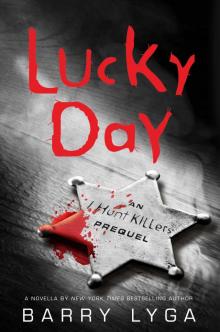 Lucky Day
Lucky Day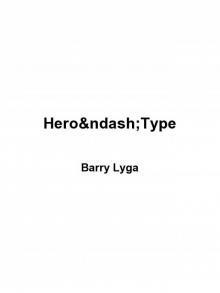 Hero-Type
Hero-Type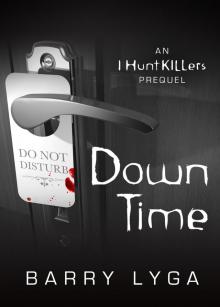 Down Time
Down Time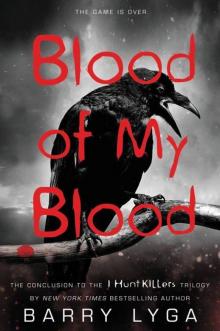 Blood of My Blood
Blood of My Blood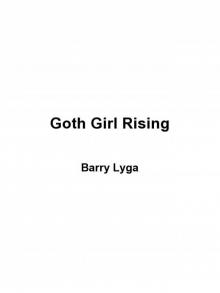 Goth Girl Rising
Goth Girl Rising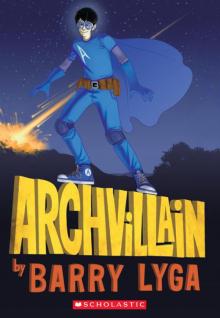 Archvillain
Archvillain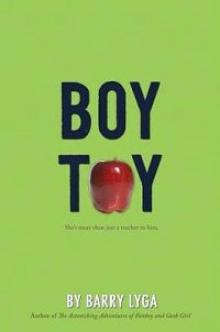 Boy Toy
Boy Toy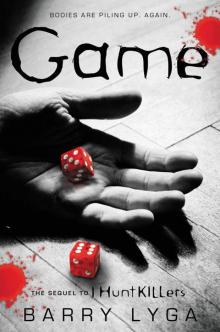 Game
Game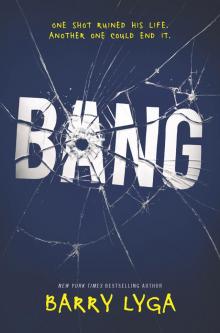 Bang
Bang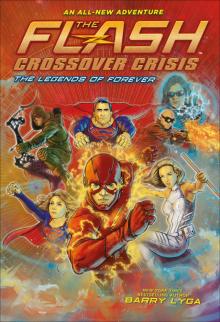 The Legends of Forever
The Legends of Forever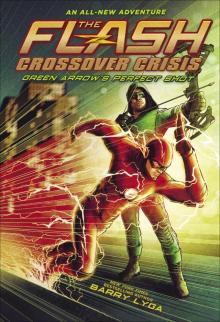 The Flash: Green Arrow's Perfect Shot
The Flash: Green Arrow's Perfect Shot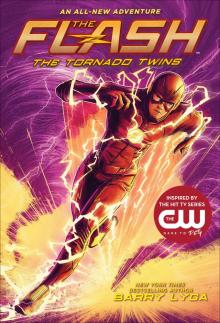 The Flash: The Tornado Twins
The Flash: The Tornado Twins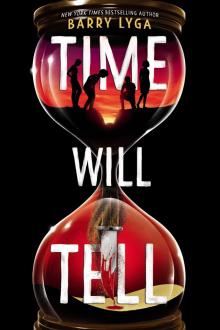 Time Will Tell
Time Will Tell The Secret Sea
The Secret Sea The Hive
The Hive Career Day
Career Day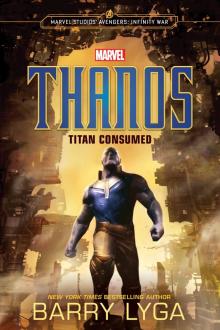 MARVEL's Avengers: Infinity War: Thanos
MARVEL's Avengers: Infinity War: Thanos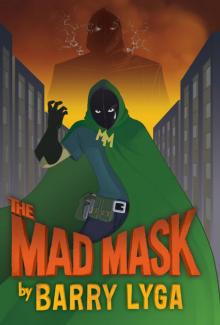 The Mad Mask
The Mad Mask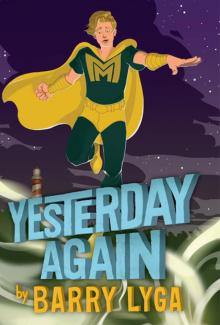 Yesterday Again
Yesterday Again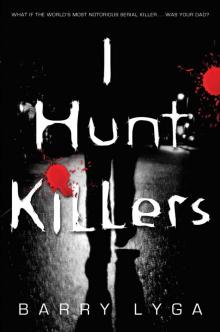 I Hunt Killers
I Hunt Killers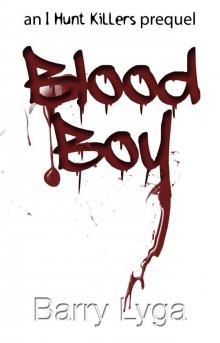 Blood Boy
Blood Boy Neutral Mask
Neutral Mask The Astonishing Adventures of Fanboy and Goth Girl
The Astonishing Adventures of Fanboy and Goth Girl I Hunt Killers Neutral Mask
I Hunt Killers Neutral Mask Neutral Mask: an I Hunt Killers prequel
Neutral Mask: an I Hunt Killers prequel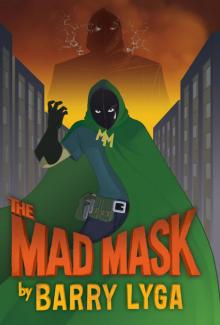 Mad Mask
Mad Mask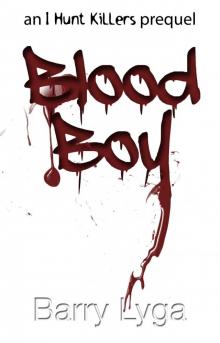 Blood Boy: an I Hunt Killers prequel
Blood Boy: an I Hunt Killers prequel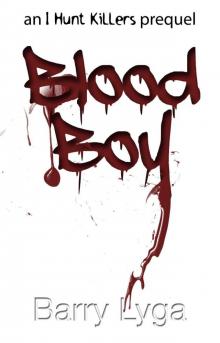 I Hunt Killers Blood Boy
I Hunt Killers Blood Boy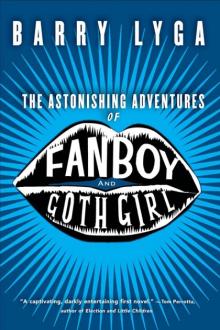 The Astonishing Adventures of Fan Boy and Goth Girl
The Astonishing Adventures of Fan Boy and Goth Girl